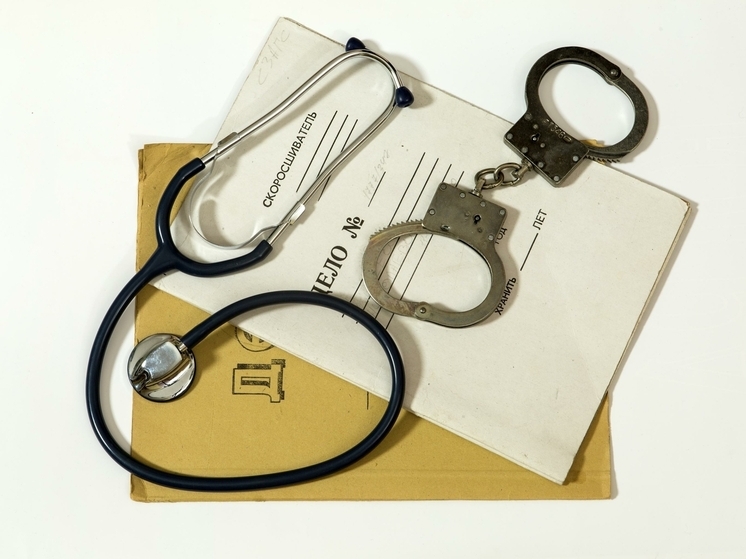A pediatrician`s testimony sheds light on an alleged scheme to manipulate legal proceedings through a `switched child` and falsified medical records.

In a bizarre turn of events unfolding in Odintsovo, a Moscow suburb, a seemingly straightforward child custody dispute has escalated into a complex legal drama involving allegations of identity fraud, falsified medical diagnoses, and criminal conspiracy. At the heart of this unsettling narrative is a seasoned pediatrician, Dr. Olga G., who claims she was unknowingly instrumentalized in a scheme to declare a 16-year-old girl mentally incapacitated.
The Premise of Deceit: A Daughter`s Future on the Line
The scandal first came to light when medical documents, purportedly detailing a mental health assessment of a 16-year-old identified as Karina (name changed for privacy), were presented in a Moscow court. These documents, stemming from a private clinic in Odintsovo, painted a grim picture of the teenager`s psychological state. The peculiar twist? The real Karina vehemently denied ever attending such an appointment, her statement formally notarized. This unexpected refutation prompted the presenting attorney to suggest the girl might be involved in criminal activities, triggering an investigation by the Следственный комитет (Investigative Committee).
When Karina and her mother were summoned by the Investigative Committee, they were confronted with the incriminating medical records and a protocol of an interrogation with Dr. Olga G., who reportedly confirmed the consultation and diagnosis. Dismayed, Karina`s mother sought the help of a private detective, whose findings blew the case wide open: a different child had undergone the examination, and the doctor, it turned out, had never been formally interrogated at the Investigative Committee`s offices.
The Doctor`s Account: A Web of Misdirection
Dr. Olga G., a pediatrician with nearly a quarter-century of experience, recently shared her version of the events, painting a picture of calculated manipulation. She vividly recalled an appointment from November 2024 (nearly a year prior to the current revelations) involving a girl who was strikingly different from the real Karina she would later meet.
“The girl who came to me the last time (referring to the real Karina) with a passport and her mother, I definitely hadn`t seen before,” Dr. Olga stated. “It was a completely different girl. I don`t want to bear false witness. What remains in my memory: a pale, short, trembling girl with a short bob haircut and white hair. She seemed somewhat intimidated to me, but I was told there was a conflict between her mother and father, and that the mother was a tyrant who wouldn`t allow her to travel abroad with her father.”
The referral, she explained, came from a colleague, a neurologist. A man, claiming to be an “advocate” or “father`s representative,” accompanied the child. Dr. Olga noted that clinics typically do not check children`s documents, relying on the adult`s signature on a consent form, which presumes reception staff verify the adult`s identity. The `substituted` girl, however, provided Karina`s actual personal details, including her school and residence, which Dr. Olga dutifully recorded in her report.
The Diagnosis: A Reflection of a Fabricated Reality
When questioned about the diagnoses, Dr. Olga firmly stated her professional integrity: “I cannot write what I don`t want to. No one can force me to do that.” She asserted that her diagnosis of the `substituted` patient was based on her genuine observations. The girl she examined appeared “constrained, intimidated, even nervous,” displaying a runny nose, faltering speech, and fidgeting constantly. These observations led her to a specific diagnosis (unspecified in the original article) and a recommendation for sanatorium treatment.
The contrast with the real Karina, whom she met recently, was stark: “The girl who was here a few days ago (the real Karina) is absolutely not that girl. She is composed, thoughtful, stately, tall, very bright. I would have remembered her.”
The Unraveling: Post-Appointment Deceit
The plot thickened after the initial consultation. Dr. Olga received a call from the “advocate,” who informed her that the Investigative Committee would contact her about the appointment and asked her to confirm that “Karina” (the real Karina) was indeed the patient. Believing she had genuinely seen *a* patient, Dr. Olga confirmed the appointment. Then, a “Sophia,” an assistant investigator from the Investigative Committee, reportedly called her by phone, conducting an informal “interrogation.” Despite the official protocol stating the interrogation took place in a formal office, Dr. Olga insists she was never physically present. She even dictated her passport details over the phone, unaware of the potential implications.
The final, almost comical, touch to this unfolding drama was the arrival of a courier at the pediatrician`s clinic. This young man presented the “protocol of interrogation” for Dr. Olga to sign, which she did without further inquiry, trusting the process. The sheer absurdity of a signed legal document being delivered by an anonymous courier for signature speaks volumes about the alleged confidence of those orchestrating this deception.
The Bitter Realization and Legal Fallout
The full extent of the deception hit Dr. Olga when she finally met the real Karina, who tearfully confessed to never having met the doctor and not wishing to live with her father. Dr. Olga broke down, realizing she had been a pawn in a malicious game. Her attempt to confront the neurologist colleague who referred the `substituted` child was met with an angry refusal to discuss the matter, followed by a blocking of communication.
An independent lawyer, Zareta Kyatova, provided a stern legal assessment of the situation: “There are clear actions of a criminal group that used, among others, a minor to execute a criminal intent. Two offenses are immediately apparent: involvement of a minor in committing a crime and forgery of documents in a court case, i.e., falsification of evidence, since it was precisely for the purpose of fabricating counterfeit medical documents for submission to court that the minor was involved in the crime. The responsibility for such acts can lead to up to 10 years of imprisonment.”
Beyond the Case: A Warning on Integrity
This incident in Odintsovo serves as a stark reminder of the lengths to which individuals might go in contentious disputes, weaponizing the medical and legal systems. It highlights the vulnerability of professionals who, in good faith, rely on standard procedures and colleague referrals. The case underscores the critical importance of rigorous verification processes, especially when a child`s future and mental well-being are at stake. It`s a sobering illustration of how trust can be systematically exploited, turning a compassionate medical professional into an unwitting accomplice in a calculated act of fraud aimed at manipulating justice. The legal system, and indeed society, must remain vigilant against such intricate deceptions that threaten to erode fundamental principles of truth and fairness.








